Are air fryers toxic? We look at the facts and bust the myths
Air fryers have been championed as a healthier way to cook food – but do they pose any risks? We've grilled the experts

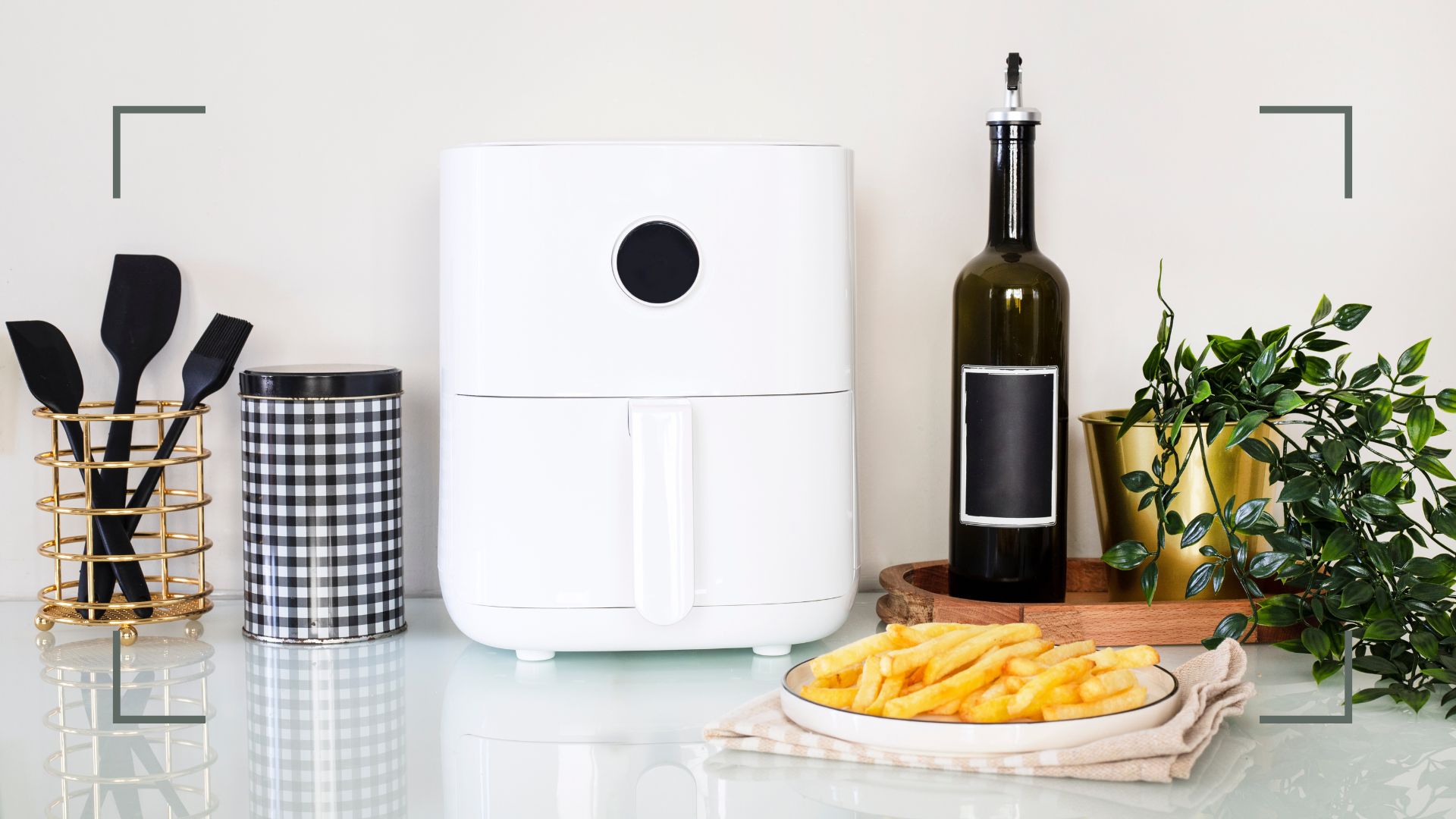
Nowadays, air fryers are to kitchens as sat-navs are to cars – you wonder how you ever survived without one. But, while these darlings of weeknight dinners wow us with their tasty chips, quick curries and fabulous fried chicken without that fattening oil, there's a rumour going around that they aren't as perfect as they seem. Whisper it quietly, but could even the best air fryers be toxic?
To put our minds and yours at rest, we decided to do some digging. We spoke to experts, including small appliances experts at AO.com, Sunday Times best-selling author and air fryer expert Clare Andrews and Lucia Stansbie, a nutritional therapist.
They'll explain how our air fryers aren't deliberately trying to poison us, and the extra precautions we can take to make sure the food we cook inside them is always safe. We've also identified the perfect non-toxic air fryers for reassuringly safe daily meal prep.
Are air fryers toxic?
First things first: the air fryer itself isn’t a toxic death trap lurking on your counter. At its core, it’s just a small convection oven with a snazzy name, and that in itself is not doing you any harm.
The concerns people have come down to two things: the non-stick coatings used on some baskets to make cleaning your air fryer easier, and something called acrylamide, which is produced when certain foods are cooked at high temperatures. But should we be worried?
Is the non-stick coating on an air fryer toxic?
"I get asked this question a lot and I know that some people worry about whether the non-stick coating in an air fryer may be toxic," says Clare Andrews. "But I believe there is no need to panic about this. Most trusted brands now use BPA-free and PFOA-free non-stick coatings, which are designed to handle high cooking temperatures and be food-safe. The only time you’d need to worry is if the coating – depending on what it's made from – becomes damaged, scratched, or worn away."
Isabelle Fogione, a small appliances expert at AO.com, also feels there isn't too much to be concerned about. "While some non-stick coatings may be toxic in principle, in practice you have nothing to worry about," she says. "Most air fryers use a non-stick coating, often PTFE (often under the brand name Teflon), to stop food from sticking to your appliance and to assist you when cleaning it."
The PTFEs that Isabelle refers to are also known as PFAS (Per- and Polyfluoroalkyl Substances). "These coatings aren’t toxic under normal cooking conditions," she assures us. "They can only become an issue if overheated to extremely high temperatures or if the coating becomes badly scratched and begins to flake."
Translation: unless you’re cooking your chicken nuggets at volcano settings, or are scraping at your air fryer basket with metal knives and spatulas daily, air fryer coatings won't be toxic.
Sign up to our free daily email for the latest royal and entertainment news, interesting opinion, expert advice on styling and beauty trends, and no-nonsense guides to the health and wellness questions you want answered.
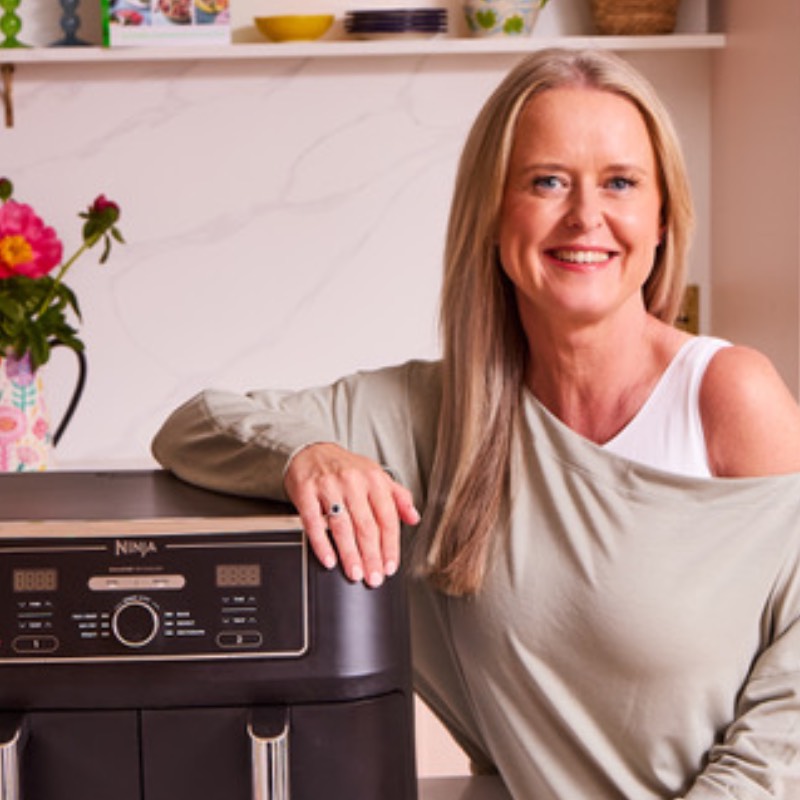
Clare is an Air Fryer expert, author and presenter. Clare's book The Ultimate Air Fryer is a No. 1 Sunday Times best-seller. Clare's new book, The Ultimate Air Fryer Cookbook: 15 Minute Feasts, is available from 6th November.
That said, some manufacturers are becoming more sensitive to the use of PFAS in their products. "Today's consumers are increasingly mindful of what materials they bring into their cooking spaces, seeking out safer cookware and environmentally responsible options," says Caroline Ross David e Silva, Product Marketing Director at Cuisinart. This would explain the increasing popularity of non-toxic baking essentials.
"The reality is that numerous air fryers currently available feature PFAS, which are 'forever chemicals’ present in non-stick surfaces that have the potential to migrate into your meals. Certainly not an ingredient you'd choose to serve your family, as they can build up over time."
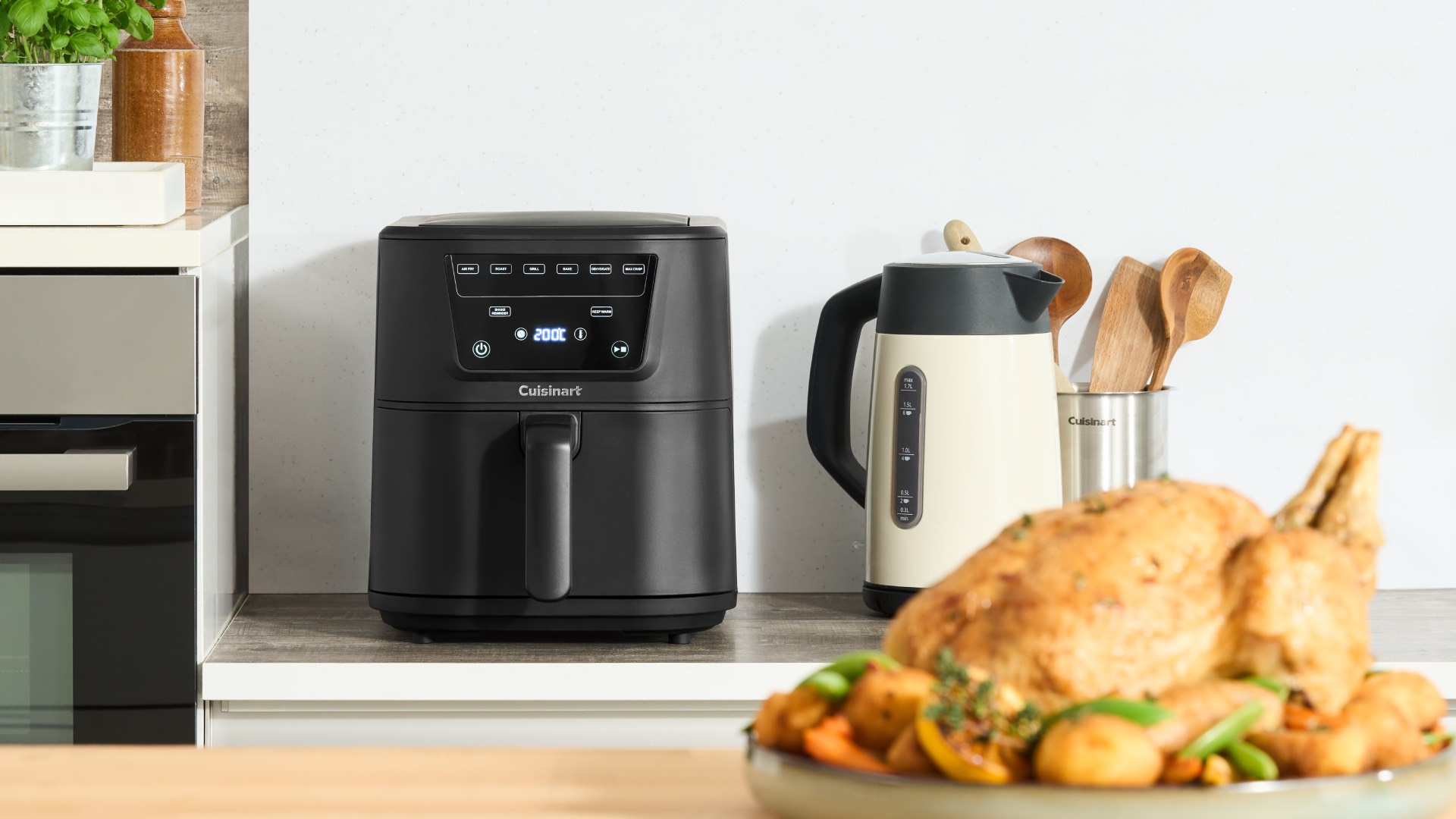
Cuisinart's Compact Max air fryer, £99.99, is free of PFAS for guaranteed non-toxic cooking.
A spokesperson at leading charity Breast Cancer UK also has concerns. "PFAS don’t easily break down in the environment or in our bodies, and long-term exposure to some types may be linked to several health concerns, including breast cancer," they told us.
"PFAS are a group of over 9000 different chemicals, some of which are known or suspected Endocrine Disrupting Chemicals, also known as EDCs. EDCs can act by increasing oestrogen levels or by mimicking how our natural hormones work, which is important for breast cancer risk as high oestrogen levels can increase risk."
"When non-stick coatings are scratched, worn down, or damaged, they can potentially release microplastics and also PFAS chemicals. Due to these concerns, Breast Cancer UK recommends avoiding non-stick cookware, where possible."

Tiphaine Boulin is a Registered Nutritionist (RNutr) with a specialist in public health. As Senior Scientific Research Officer at Breast Cancer UK, she focuses on how nutrition and lifestyle factors can help reduce breast cancer risk. She is passionate about evidence-based communication that empowers people to make informed, healthier, and more sustainable choices.
How can you reduce the risk of non-stick coating being harmful?
The obvious way you can reduce your exposure to chemicals that can be present in non-stick surfaces is to seek alternatives, such as stainless steel, ceramic or cast-iron. That's why we've highlighted the best non-toxic air fryers that allow you to cook without concerns.
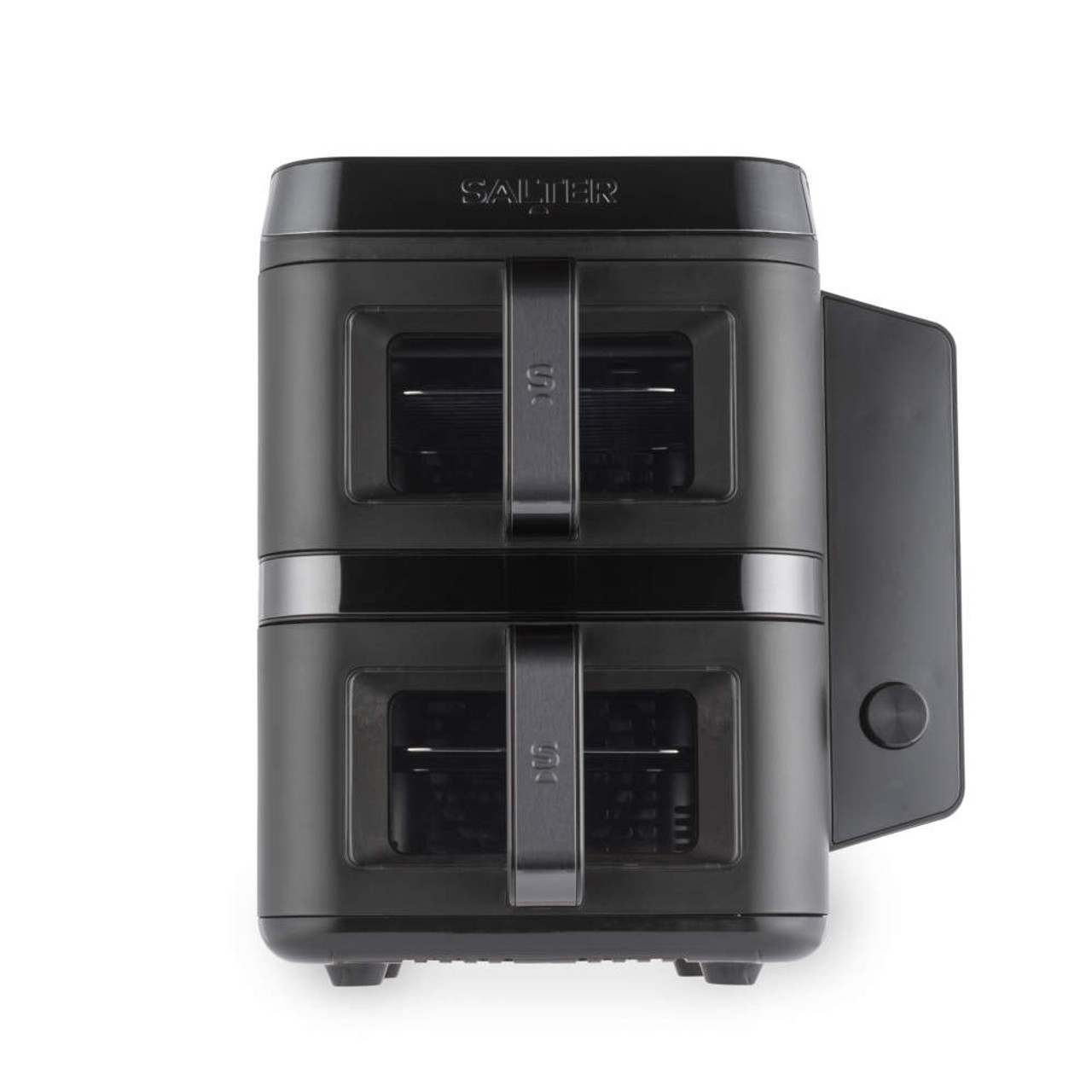
Non-stick coating: ceramic | With a whopping 9-litre capacity, the Salter can feed at least six people without breaking a sweat. The side panel offers 12 handy pre-sets that'll stop your food from burning, and you can keep an eye on what's cooking with a handy viewing window. It even comes with clever accessories that transform two drawers into four shelves.
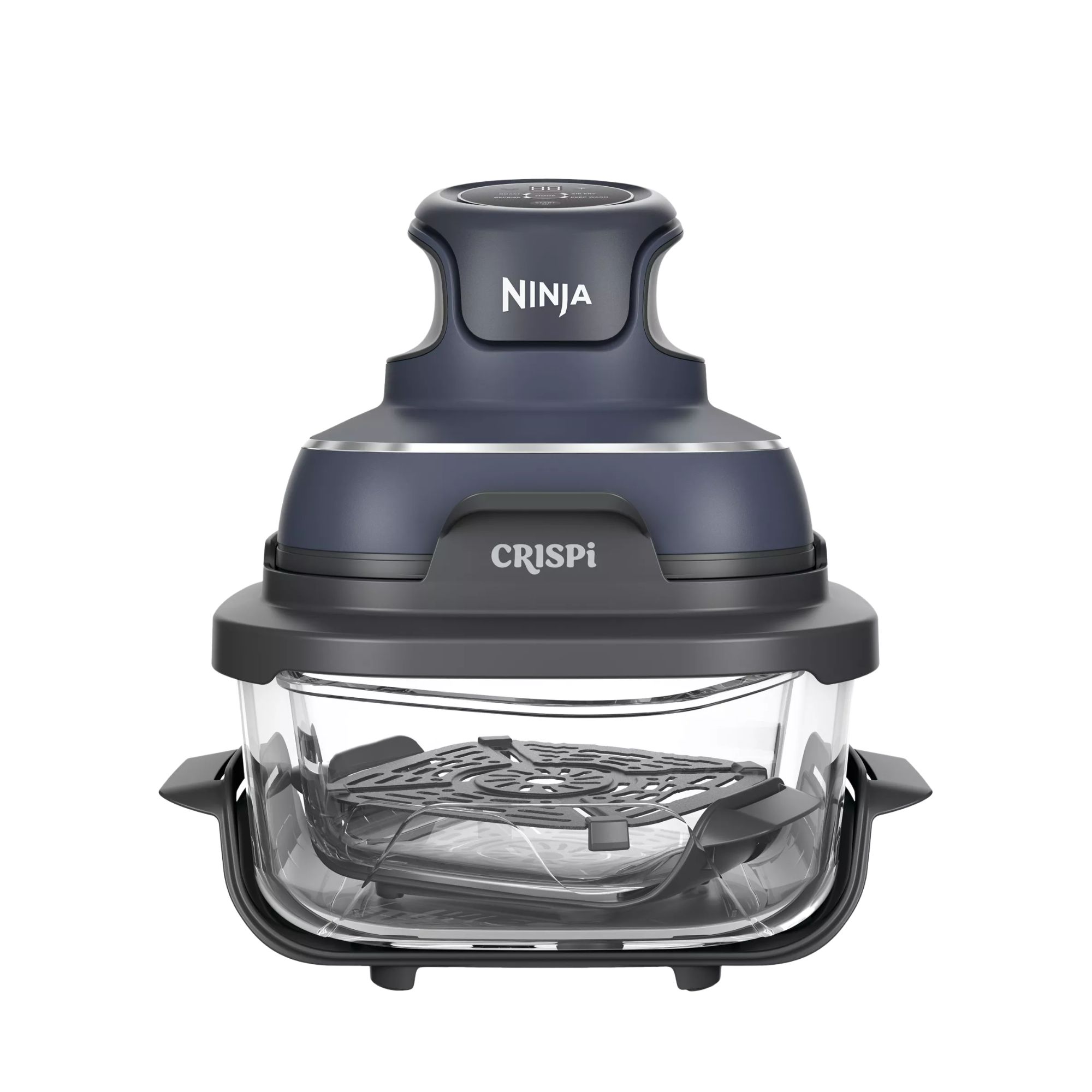
Non-stick coating: ceramic | There isn't another air fryer like this on the market; it's a true hero. The attachment on top clips onto special Ninja glass air fryer dishes. It cooks food in the same container that you could use for storage. I can fit all this in a drawer, which is remarkable given that most air fryers don't even fit in a cupboard.
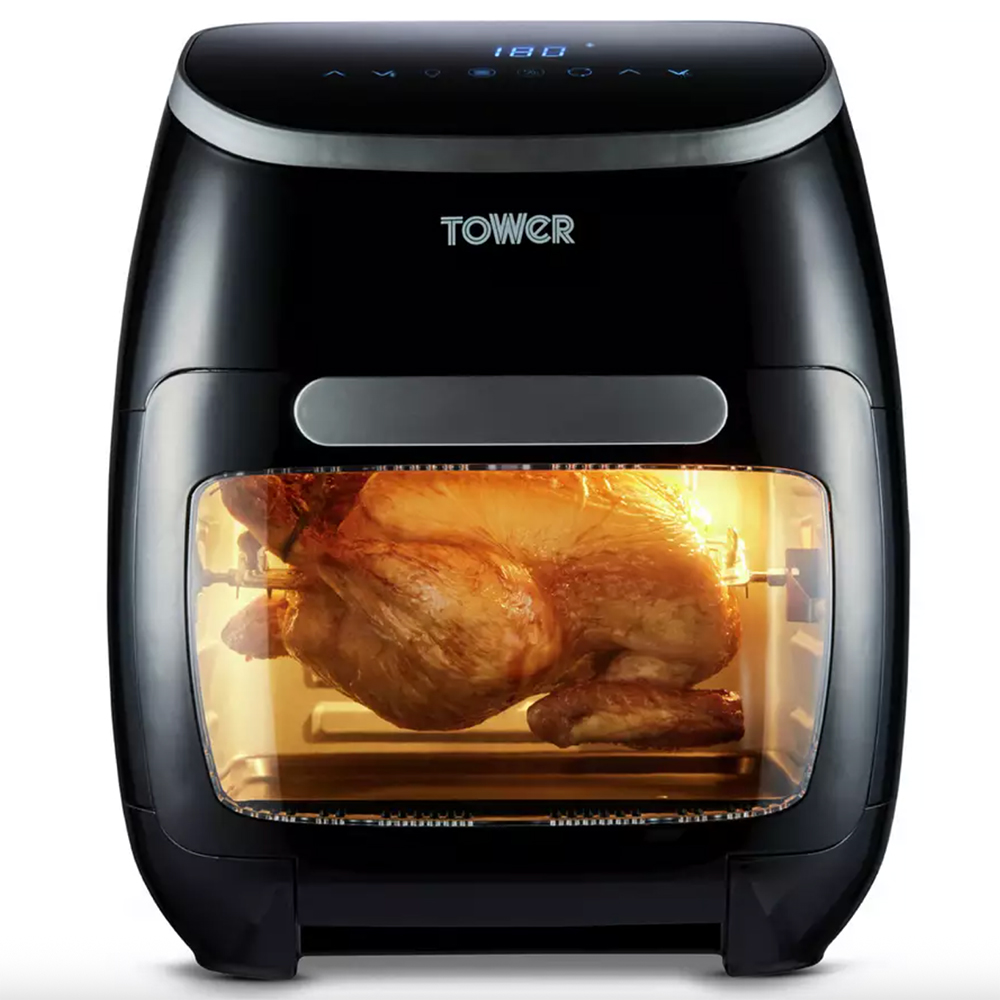
Non-stick coating: stainless steel | The Tower often gets overlooked, but it's an impressive oven. The clear viewing window makes it easy to keep an eye on your food, and you'll have 10 different presets that take you from baking and roasting through to dehydrating. For the price, it's exceptional. Compared to every other oven, it's remarkable. To me, that's unmissable.
If your air fryer has a non-stick coating, there are easy ways to ensure it's safe – namely by avoiding certain air fryer usage mistakes.
"To prevent your non-stick coating from becoming damaged or overheating, try to avoid using metal utensils, which could cause scratching," says Isabelle. "Instead, use silicone, wood, or plastic tools, and when you’re cleaning it, use a soft sponge rather than steel wool."
"Another good practice is to stick to safe temperatures – don’t pop your air fryer on at any heat hotter than recommended by the manufacturer," says Isabelle. "And if you do notice that your air fryer’s coating is peeling or badly scratched, you’ll need to buy a replacement basket to be on the safer side."
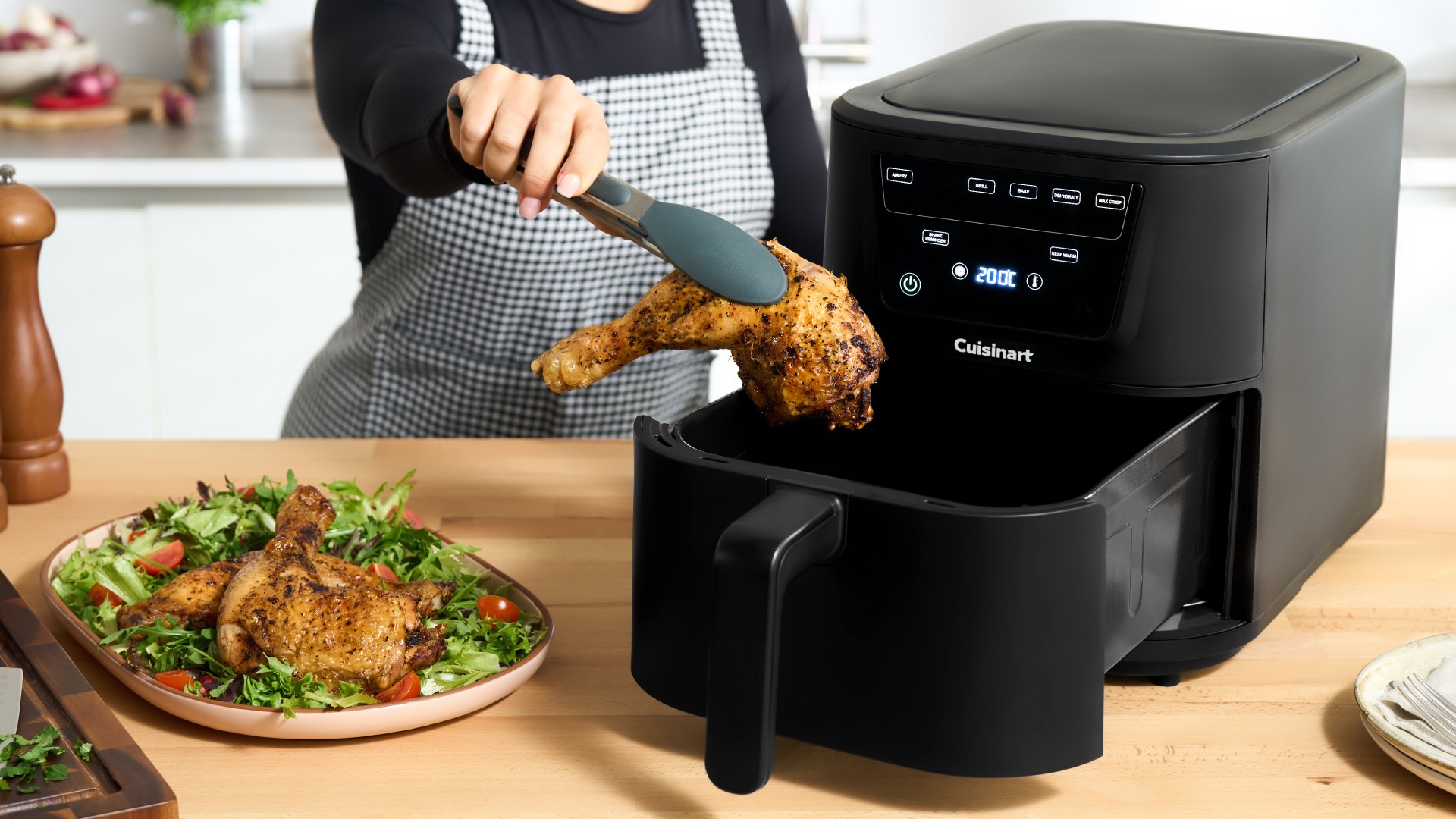
Using silicone utensils will help prevent the surface of your air fryer baskets from becoming scratched
"To look after the coating, avoid using aerosol oil sprays as they can sometimes break the coating down," says Clare, "and handwash the basket with a soft sponge rather than anything abrasive. The best way to wash your air fryer without damaging the non-stick coating is to keep it gentle and simple. For the main air fryer unit, just wipe it down with a damp cloth."
Is air fried food toxic?
It's certainly not true that any food cooked in an air fryer becomes toxic. However, there is a risk that acrylamide can be produced in certain circumstances – a chemical that has been linked to cancer in studies led by the World Health Organisation's International Agency for Research on Cancer.
"Acrylamides are formed when starchy food is charred or baked until deep brown," explains Lucia Stansbie, a nutritional therapist and member of the Royal Society of Medicine. "This includes foods such as chips, baked potatoes and bread – think fish or meat in breaded coatings! To avoid the formation of these toxic compounds, you should cook foods until golden, rather than until they become very brown or display charred parts. This risk is also present when deep frying or baking, so time control is key."
And that's the kicker – acrylamide can form in any sort of cooking appliance, from your range cooker to your pizza oven. So if you’re panicking about acrylamide forming due to your air fryer, you might also want to have words with your toaster.
"The good news is, with an air fryer, you are in more control: you can set precise temperatures and timers, which actually reduces the risk of burning food compared to other cooking methods," says Clare. "So, as long as you avoid cooking your chips until they are overly dark, air frying remains one of the safest and healthiest cooking methods out there."
"Air-fried food is far from toxic; it’s in fact often healthier than traditional frying," Isabelle at AO.com insists. "Since your air fryer uses hot air circulation instead of oil, you’ll be able to get a crispy texture on your food with far less fat. Used sensibly, air frying is safe, convenient and a simpler way to enjoy your chips, chicken, or veggies without any lingering guilt."
How to reduce the risk of air fryer food being toxic
Our experts have various suggestions on how to avoid the formation of acrylamide in your air fryer. "Familiarise yourself with its cooking settings, making sure you don’t 'overdo' your starchy foods," says Lucia Stansbie. "And avoid the temptation. to use the maximum temperature to “speed up” cooking times."
"My tip is to pre-soak potatoes and other starchy vegetables before cooking them, as the water in them will reduce acrylamide formation."
"Adding a light coating of oil can also protect the surface of foods from over-browning," recommends Clare. "And keep an eye on colour: aim for golden, not dark brown. By tweaking prep and settings, you can enjoy all the crunch and flavour of air frying while keeping it as safe and healthy as possible."
"Store potatoes in a cool, dark place like your pantry, not the refrigerator, which can actually increase sugar content," suggests Adam Gilbert, founder and chief body tutor of MyBodyTutor. "Mix up your cooking methods too – don't rely solely on your air fryer. Use steaming, boiling, or lower–temperature cooking sometimes. Remember, variety in both cooking methods and food choices is always your friend for better health."

Lucia Stansbie, is a certified nutritionist and nutritional therapist based in London, founder of Food Power Nutrition. She is registered with BANT and the Royal Society of Medicine as well as being an NCED (National Centre for Eating Disorders) certified practitioner.
At her clinic, Lucia addresses gut health and hormonal imbalances as well as Mast Cell Activation Syndrome (MCAS).
Verdict: are air fryers toxic?
The truth is that no air fryer is poisonous if you adhere to the cooking and maintenance guidelines properly. Don’t crank the heat to “surface of the sun” levels and don’t scrape the basket with metal utensils – use silicone-based tools instead.
Make sure you clean all your appliances and any air fryer accessories in accordance with the manufacturer's guidelines. That means NOT putting your air fryer baskets in the dishwasher unless it's explicitly recommended, and NOT using metallic scourers or anything that could damage a non-stick surface.
If you want extra peace of mind, look for models with PFOA and PFA-free coatings – that way, you can focus on perfecting crispy chicken nuggets instead of worrying about invisible nasties. In short, cook smart, choose wisely, and let your air fryer do what it does best – make life easier, one crunchy bite at a time.

Amy is a PPA award-winning Digital Editor who has been working in the wonderful world of interiors for over 16 years. She has worked on titles including Inside Readers’ Homes, Inspirations for Your Home, Country House & Home and 25 Beautiful Kitchens magazine. After a stint on Beautiful Homes, she joined Ideal Home in 2010 as a Consumer Editor, then Technology Editor where she was better known as 'Girl About Tech' to prove her credentials as a product expert before landing the role of Digital Editor of Ideal Home in 2017. She has gone on to work as Group Digital Editor at Ideal Home, Homes & Gardens & Livingetc, Head of Homes Audience at Future, and Homes Editor at Saga.
Amy now works freelance across leading world-renowned Homes & interior, Lifestyle and Tech titles such as Saga, Tom's Guide, Digital Trends, Homes & Gardens, Real Homes and Ideal Home.
You must confirm your public display name before commenting
Please logout and then login again, you will then be prompted to enter your display name.